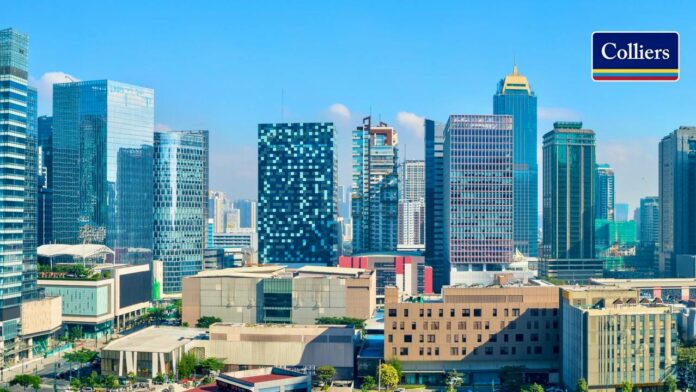Colliers Philippines reported significant shifts in the Metro Manila office market, marking the first negative net take-up since 2021.
Colliers noted in its third quarter report that the downturn follows the ban on Philippine offshore gaming operators announced in July by President Ferdinand Marcos Jr., which has led to an increase in vacated office spaces outpacing demand during the third quarter of 2024. With the anticipated lease terminations by POGO occupiers and the non-renewal of pre-pandemic leases, Colliers forecasts elevated office vacancy rates and a flat net take-up by the end of 2024.
The challenges in Metro Manila’s office market starkly contrast with the performance of provincial markets, where outsourcing firms are aggressively expanding their presence.
Colliers said that despite the difficulties in Metro Manila, regional markets continue to exceed expectations, reflecting a strategic shift as companies seek cost-effective alternatives outside the capital. Colliers emphasizes that various “disruptive events,” including the upcoming US Elections and local regulatory changes such as the CREATE MORE bill, the POGO ban, and BEPS 2.0, will continue to impact the office landscape into early next year.
The office supply landscape is also changing. In the third quarter, only 9,500 square meters of new office space were completed, and projections indicate that overall new supply will drop by 52% year-over-year in 2024. This reduction is largely due to construction delays, muted pre-leasing activity, and rising vacancies in certain submarkets.
Rental rates in primary Central Business Districts are experiencing a marginal recovery, yet secondary CBDs are facing a different reality. Areas significantly impacted by the POGO ban are expected to see a further decline in lease rates, adding pressure to landlords who must navigate these challenging conditions.
As vacancy rates increase quarter-over-quarter, Colliers anticipates that by the end of 2024, overall vacancy could rise to 20.5%. This uptick is driven by new supply and continued space surrenders from POGO occupiers, further complicating the recovery prospects for the office market.
The regulatory environment is also a crucial factor influencing office demand. Many occupiers, particularly in the outsourcing sector, are closely monitoring the progress of the CREATE MORE bill, which proposes significant amendments to the tax code. A key component of this bill is the 50% work-from-home cap for registered business enterprises under investment promotions agencies like PEZA, which may impact operational strategies.
The introduction of BEPS 3 Pillar Two legislation is expected to reshape the office market dynamics. As the Philippines aligns with the OECD Inclusive Framework on Base Erosion and Profit Shifting, multinational companies with revenues exceeding €750 million may face a new global minimum effective tax rate of 15%. This development could diminish the tax incentives traditionally enjoyed by RBEs, such as income tax holidays, further complicating the investment landscape in the office sector.







